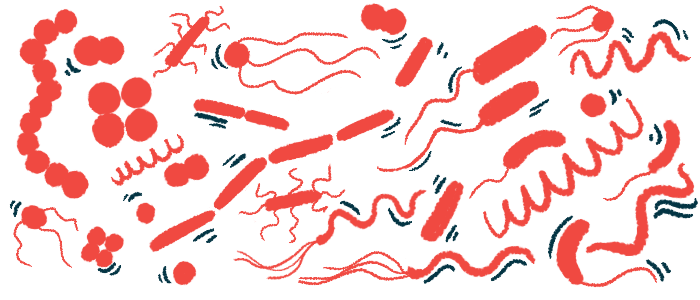Study identifies pro-inflammatory gut bacteria as PAH risk factor
Patients often present gut microbiota imbalance
Written by |

A new study identifies the presence of bacteria from the genus Eubacterium fissicatena, known for their pro-inflammatory properties, as a risk factor for pulmonary arterial hypertension (PAH).
While the findings suggest “specific intestinal bacteria” are biomarkers for pulmonary PAH, and show “compelling evidence” that connects gut imbalance, or dysbiosis, to PAH, the researchers said using “intestinal microbiota as a therapeutic intervention in clinical settings still requires significant advancements.” The study, “Genetically determined gut microbiota associates with pulmonary arterial hypertension: a Mendelian randomization study,” was conducted by researchers in China and published in BMC Pulmonary Medicine.
PAH is a progressive disease marked by high blood pressure in the vessels that supply the lungs, making the heart’s right ventricle work harder to pump blood.
Increasing evidence supports a key role for gut microbiota, that is, the vast community of friendly bacteria, fungi, and viruses that colonize the gastrointestinal tract, in maintaining the good function of organs, including the lungs.
People with PAH often display an imbalance of the gut microbiota, with a higher prevalence of bacteria that promote inflammation, and fewer with anti-inflammatory properties.
Establishing a causal link between gut bacteria, PAH
While the findings support a communication axis between the gut and lungs, a causal relationship between gut bacteria and PAH requires further investigation. Identifying this link could further the understanding of the “lung-gut axis in PAH development and facilitate the identification of potential therapeutic targets,” wrote the researchers, who used a method to test causality based on genetics, called Mendelian randomization, or MR. The method uses genetic information to assess the causal nature of a link between a risk factor and an outcome based on observational data.
The researchers applied the method to genetic data from genome-wide association studies (GWAS) on the gut microbiota and of PAH patients. GWAS enable researchers to search for variations in all the genes in a person’s cells.
Gut microbiota genetic data were acquired from the international consortium MiBioGen, the largest publicly accessible database of GWAS of the gut microbiota, involving samples from 18,340 people. The PAH genetic data were from the NHGRI-EBI GWAS Catalog, which comprises four independent studies with 11,744 samples from 2,085 PAH patients.
Bacteria from the genus Eubacterium fissicatena were the only ones identified as a statistically significant risk factor for PAH, with a causal association.
Bacteria predicted to have a protective value against PAH included those from the genus Eubacterium eligens, Phascolarctobacterium, Erysipelatoclostridium, and Tyzzerella3. Eubacterium eligens bacteria, commonly found in the human colon, promote the production of an anti-inflammatory molecule called interleukin (IL)-10. Gut bacteria with a protective role are commonly producers of short-chain fatty acids (SCFAs), key molecules produced by gut microbial species that may have anti-inflammatory properties.
The findings suggest Eubacterium eligens may produce SCFAs to apply their anti-inflammatory effects, helping to thwart PAH from developing. In contrast, bacteria from the genus Eubacterium fissicatena seemed to increase the risk of developing PAH. These bacteria are believed to promote inflammation.
The researchers said the results of the MR study “identified a potential causal effect of the gut microbiota and PAH,” but added it was necessary to do “meticulous experimental investigations to establish the causative relationship between gut dysbiosis, altered gut microbiome, and the pathogenesis [disease progression] of PAH” before considering making adjustments to gut microbiota as a therapeutic approach.




